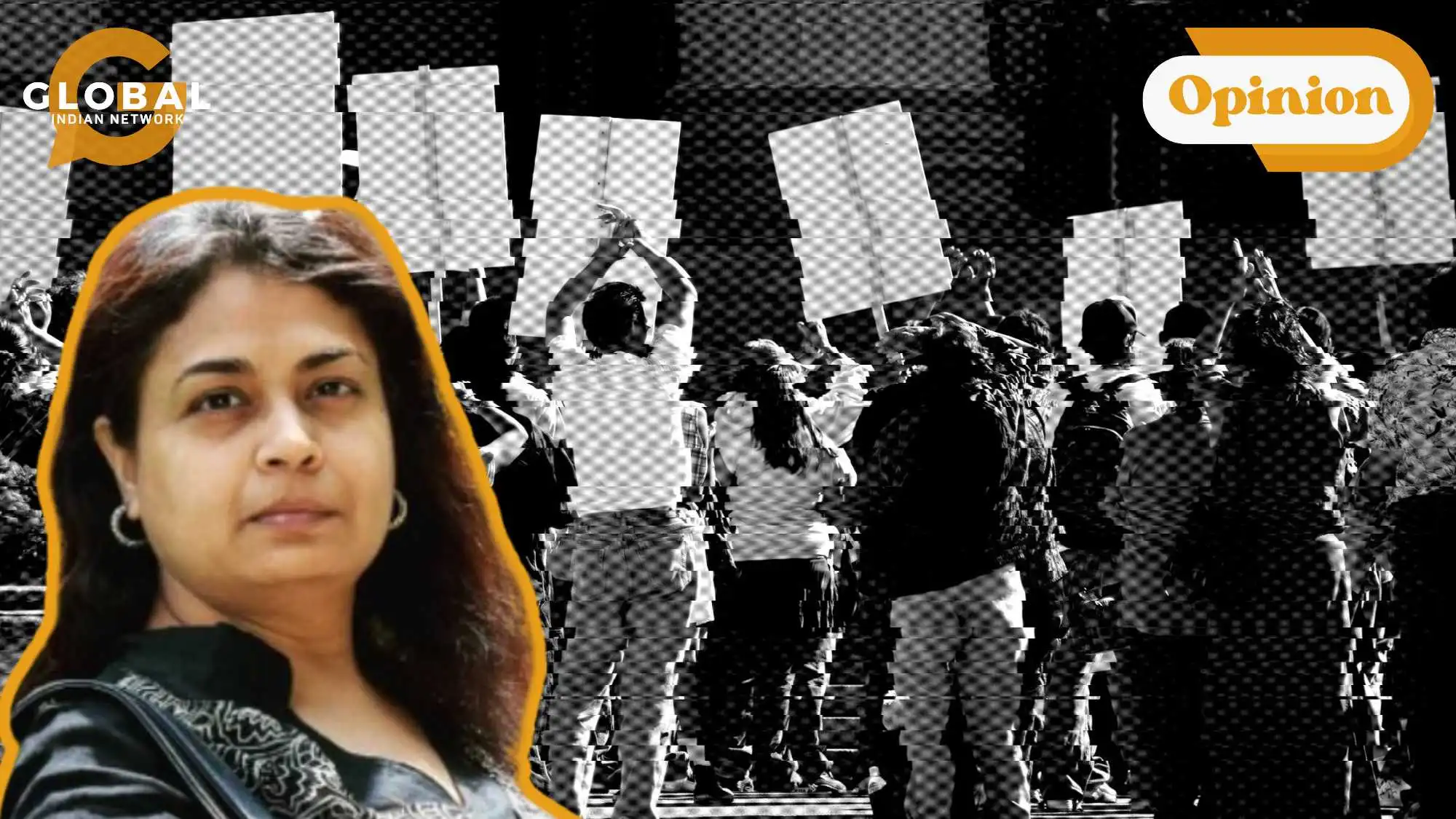Don’t be like the three monkeys: blind, dumb, and deaf.

Especially when you are about to choose the ones who will rule over you.
You know where this is heading. Yes, we are discussing the group of people whom everyone loves to hate. The POLITICIANS!
The Pied Piper Effect
If you haven’t been living under a rock, you’ve heard the tune.
There’s an eerie echo of the Pied Piper in today’s political theater, a figure whose music was irresistible, whose followers never noticed where they were being led until it was too late. Today’s far-right leaders play a similar melody, composed of nostalgia, outrage, and selective truth. They march at the head of crowds who believe they’re walking toward salvation, not realising they’re being led away from empathy, nuance, and shared humanity. The Piper’s song promises deliverance, but its rhythm is fear, and those who dance to it rarely hear the silence that follows.

Across continents, a familiar chorus echoes through rallies, hashtags, and televised debates: a call to “take our country back.” From Washington to Warsaw, from New Delhi to Buenos Aires, the far-right’s language of righteousness feels remarkably uniform, as though reading from a shared global script. But as the decibels rise and the slogans repeat, one can’t help but ask: is the far-right truly right, or merely rehearsing conviction until it sounds like truth?
The answer lies as much in psychology as in politics. The far-right’s global ascent isn’t just a result of policy failures or economic strain; it’s the outcome of a deep emotional choreography. Leaders tap into primal instincts: fear, loss, and belonging. Followers, often weary of uncertainty, respond with the comfort of certainty. The transaction is simple: one sells clarity, the other buys relief. It’s not about ideology at first; it’s about identity.
A Shared Script Across Borders
The far-right movements across nations seem to mirror each other almost uncannily. “Make America Great Again” morphs into “Take Back Control” or “Hindustan for Hindus.” The enemies are reshuffled, the accents change, but the narrative rhythm remains the same, a nostalgic yearning for an imagined past, weaponised into a promise of national purity.

The irony is profound: movements that champion isolation and nationalism borrow their rhetoric, visuals, and strategies from each other. Social media algorithms carry these messages faster than any manifesto, translating fear into memes and outrage into virality. Online echo chambers flatten geography; a grievance in one nation becomes a template for another. The far right, in effect, has become the most globalized form of anti-globalization.
The Psychology of the ‘Righteous’ Leader
Far-right leaders are rarely innovators; they are amplifiers. Their skill lies not in creating ideology but in emotionally tuning to their audience’s anxieties. Psychologists might call it authoritarian charisma, a mix of dominance, paternal assurance, and moral simplicity.
Not sure?
The proof is in the appalling answers to questions of why some Americans adore President Trump. They say he has a strong ‘personality.’ And they can’t even name one of his policies.

To me, it is because of identification with a leader. Or what one wants to be. It is also a lack of self-awareness and the non-existence of critical thinking. Not knowing what is good or bad for oneself is one of the worst things.
Such leaders project themselves as protectors of the “real” people against a corrupt elite or invasive outsider. They speak in absolutes, a language that soothes the disoriented. In times of rapid change, nuance feels exhausting. Certainty, even when false, feels like safety.
The far-right leader thus becomes both shepherd and salesman, offering identity as a product and belonging as a service. And just as every shepherd needs a flock, every populist movement depends on followers ready to follow.

The Herd and the ‘Sheeple’
The term “sheeple”, part sheep, part people, often circulates as an insult for those who uncritically follow authority. Yet, herd behavior isn’t limited to the far-right; it’s a human constant. Social psychology shows that individuals conform to group norms not because they lack intelligence, but because belonging feels safer than standing alone.
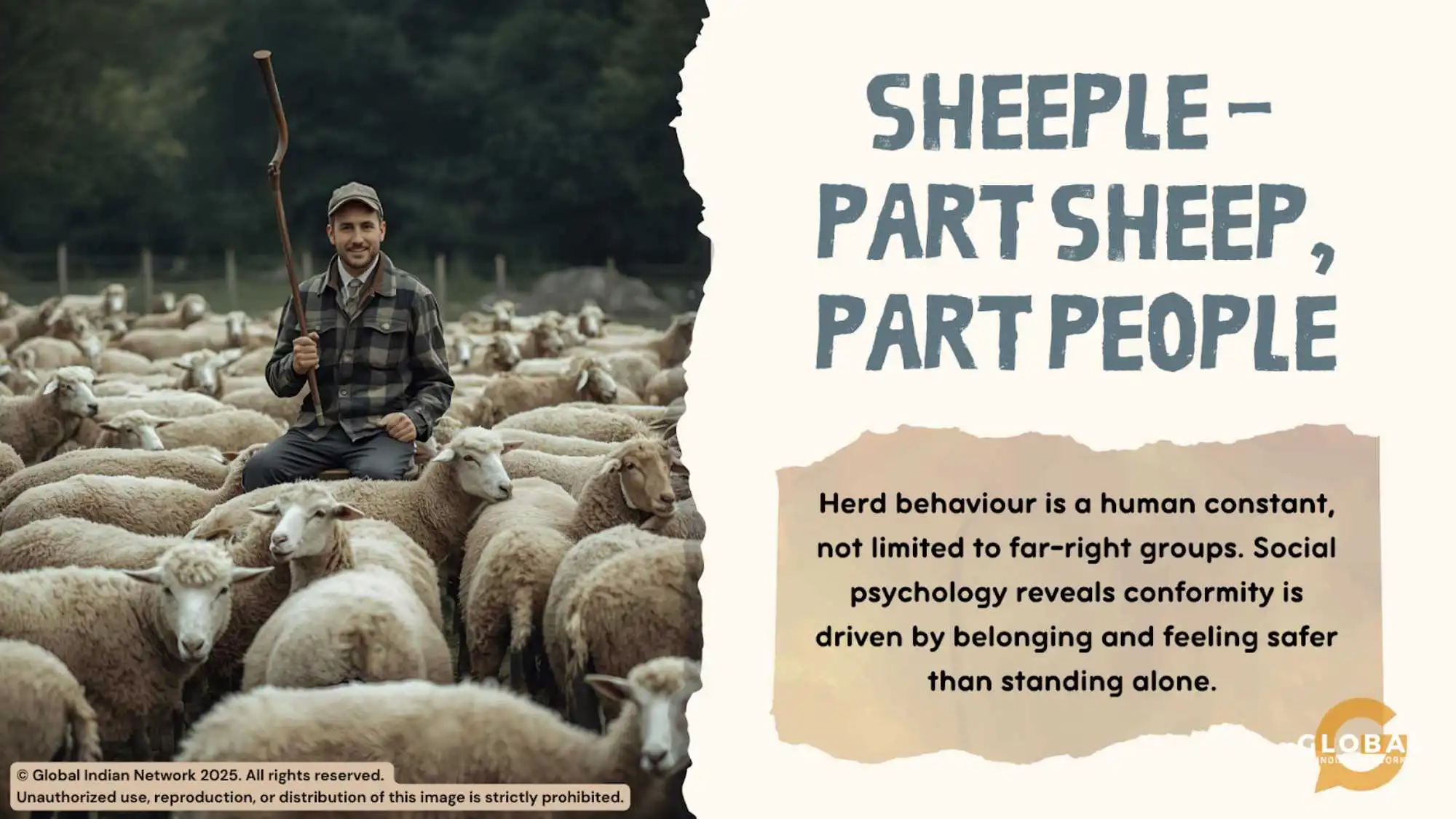
The far-right, however, exploits this instinct masterfully. It creates moral binaries so stark that neutrality feels like betrayal. The “us versus them” narrative triggers the amygdala, the brain’s fear centre, leading people to seek protection from perceived threats, often the very threats their leaders invented.
Digital media amplifies this psychology. Online, we are rewarded not for doubt but for repetition. Sharing a slogan earns more validation than questioning it. Over time, the echo chamber doesn’t just reinforce beliefs, it reshapes identity. People no longer have opinions; they are their opinions.
Democracy’s Rockstars
The Pied Pipers of our time aren’t medieval minstrels, they wear designer jackets, hug flags, and preach “national pride” on LED-lit stages. From Modi’s “New India” to Milei’s “Chainsaw Revolution,” from Meloni’s nostalgia-soaked Italy to Orbán’s proudly “illiberal” Hungary, the melody is uncannily familiar. Each promises a rebirth of greatness while quietly rewriting the definitions of democracy, dissent, and decency. They sell outrage like concert tickets and feed their followers a steady diet of “us vs. them,” as if division were the only source of strength left on the menu.
What drives them? Not divine calling or civic duty, but the oldest human virus: greed for power and control. It’s a high-calorie addiction with zero nutrition. The irony is almost poetic, the very values that lift these leaders to power are the ones that hollow out their societies. They rule for the short-term dopamine hit of dominance, not realizing (or perhaps not caring) that the system they exploit is the same branch they’re busy sawing off.
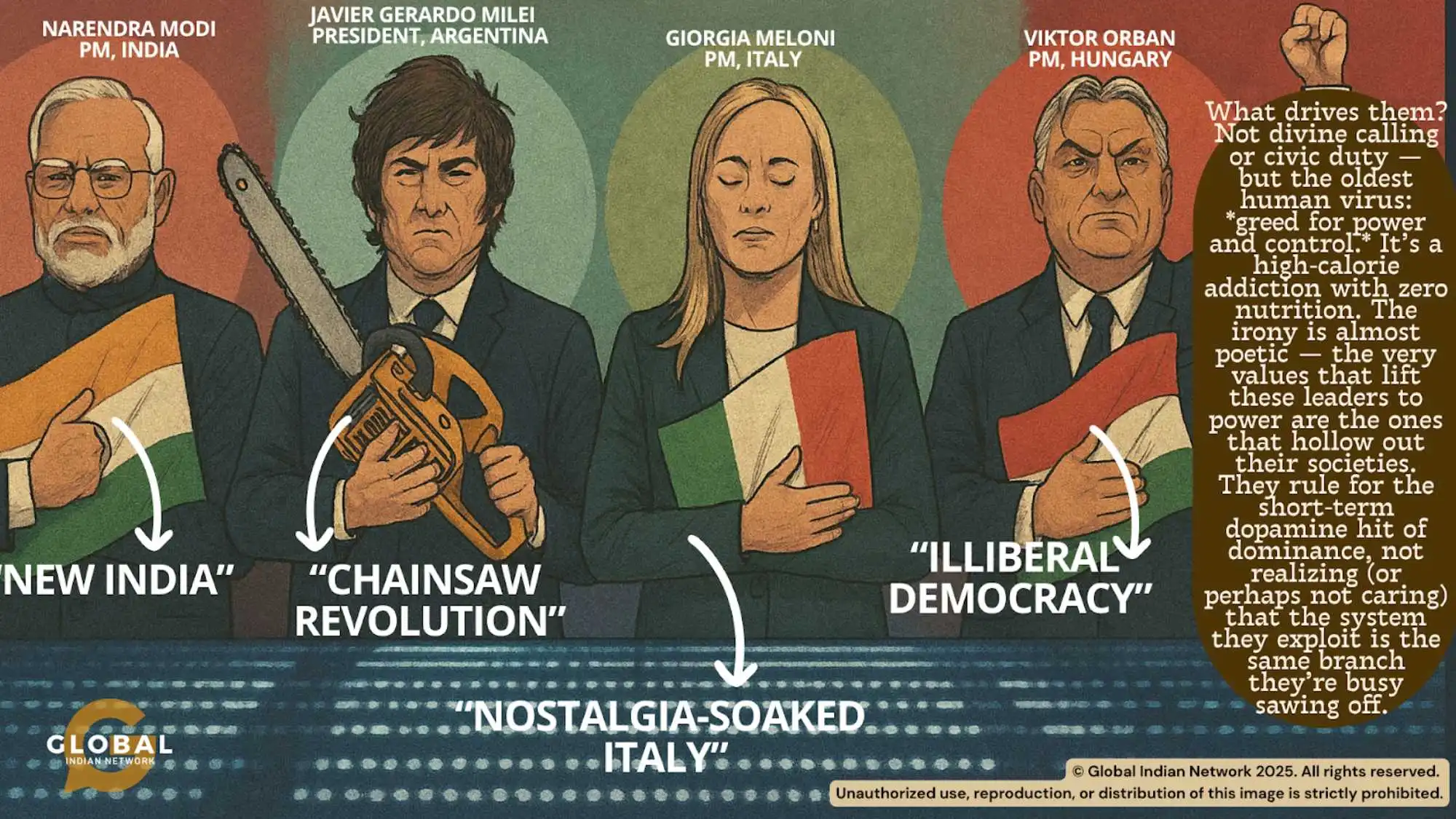
You can’t set fire to the ground you stand on and expect to keep your shoes clean. Yet here we are, watching self-proclaimed patriots torch not just policies and institutions but the planet itself in the name of “progress.”
This piece is not complete without reference to some ‘leaders’ who are likely dreaming of ruling forever.
While far-right movements in democratic contexts often rely on electoral populism and cultural grievance, leaders like Putin, Kim, and Xi represent state-driven models of authoritarian control, where nationalism, surveillance, and suppression of dissent are institutionalized rather than contested.
And what’s truly fascinating, if not mildly horrifying, is the psychology behind it all. Do these men (and the occasional woman) genuinely believe the public is that gullible? Maybe they do. After all, why wouldn’t they? The crowd keeps clapping, the trolls keep trolling, and the polls keep polling.
But here’s the cosmic joke: it’s always one person versus millions. Always has been. So who’s really more important: the shepherd or the flock? The answer should be obvious, yet somehow, the sheep keep electing the wolf to guard the pen. Much to the glee of the wolf!
Evolution might need a software update.

The Emotional Economy of the Far-Right
If liberal politics trades in ideas, the far-right trades in emotions. Its economy is built on the currency of outrage, nostalgia, and moral panic. Followers are not mobilised by detailed manifestos but by stories that feel personal and sacred: the lost homeland, the threatened faiths, and the silenced majority.
These emotions bind people more effectively than policies ever could. They provide meaning in a world that feels atomised, especially when traditional anchors, religion, work, family, and community, are weakening. The far-right steps into this vacuum, promising restoration. But what it offers is not renewal; it’s regression disguised as revival.
Quantitative Lens
This piece portrays a skewed picture, some may say. Statistics prove otherwise.
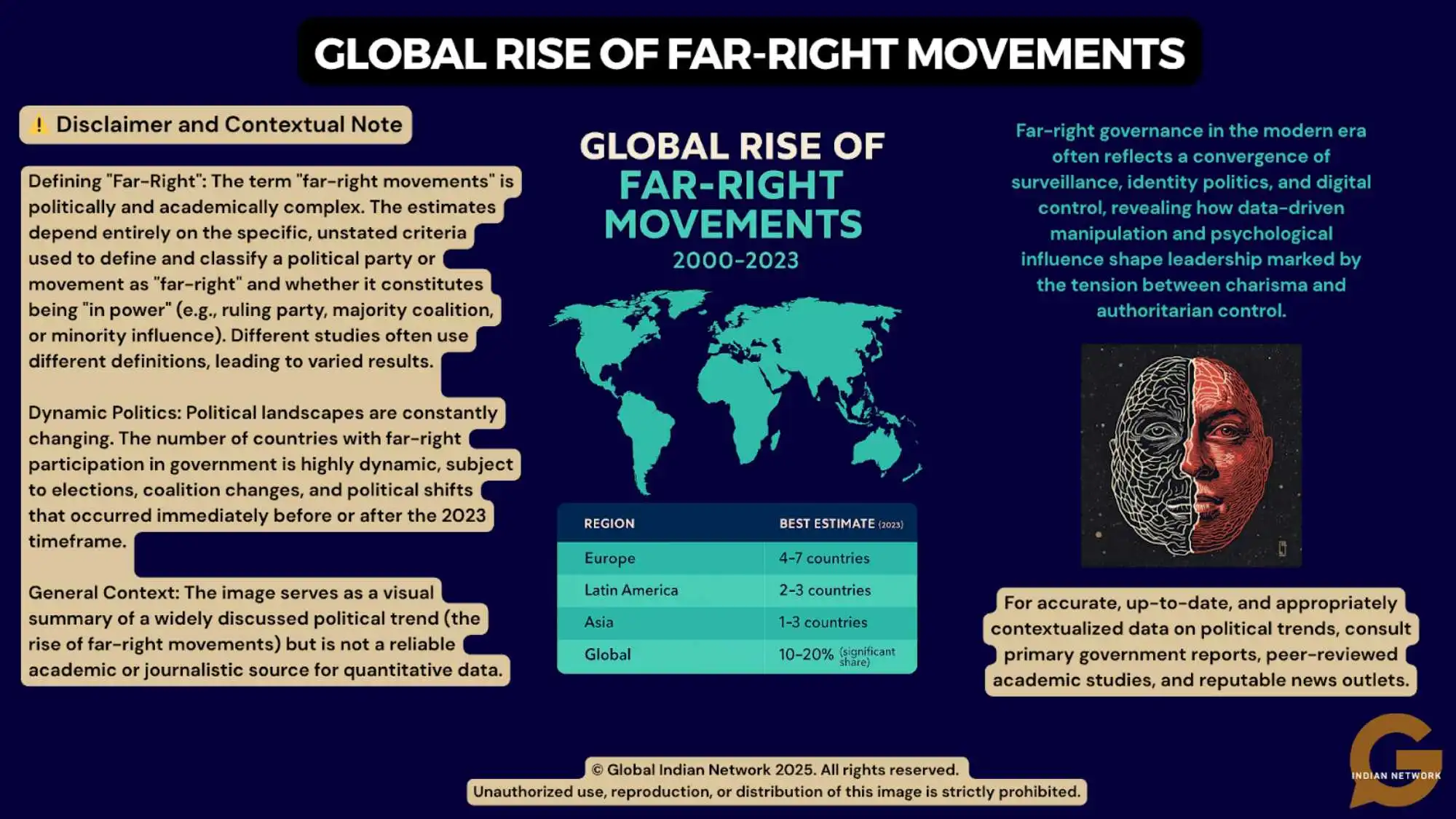
Recent data underscores that populist sentiment translates into heightened political engagement rather than apathy. Surveys from 2025 show that over half of respondents across major democracies believe their societies are fractured, driving demand for strong, populist-style leadership. This engagement often manifests through elections and grassroots activism, powered more by emotion than ideology. Economic anxiety and social distrust remain core drivers, linking discontent to polarization. In essence, statistics confirm that populism thrives not on silence but on emotional mobilization, turning grievance into participation and fear into political energy.
Morality, or the Illusion of It
The far-right often cloaks its agenda in moral righteousness, defending tradition, protecting children, and restoring values. Yet morality here functions less as a compass and more as a costume. It legitimises exclusion while pretending to safeguard virtue.
Another form of benevolent sexism, eh?
Is the far-right “right” in a moral sense? Rarely. It conflates moral strength with domination and virtue with obedience. It defines righteousness not by compassion or truth but by conformity and control. In psychological terms, it externalises guilt: projecting inner insecurities onto outsiders, liberals, minorities, or “traitors within.”
The followers, meanwhile, experience moral relief. By aligning with a cause that feels virtuous, they absolve themselves of complexity. The world is easier to navigate when divided neatly into saints and sinners. Doubt becomes unnecessary; thinking, optional.

When Every Nation Becomes Its Own Echo
The global rise of far-right movements reveals something sobering about the human condition: our longing for certainty is borderless. Each country tells itself it’s defending something unique, yet all are performing the same play, the politics of grievance under the banner of pride.
In this worldwide theatre, the far-right has indeed mastered the art of being ”right”, rhetorically, emotionally, and performatively. But being right and being right are not the same. Truth demands humility; ideology demands followers.
A Note to Politicians and Leaders
In an era marked by deep societal fractures and escalating polarization, political leaders bear a profound responsibility, not just to lead, but to heal. The rise of far-right movements is a symptom of broader social anxieties, economic insecurities, and eroding trust. Leaders who prioritize empathy, seek nuanced understanding, and foster inclusive dialogue can counteract the divisiveness.
To be trusted is a greater compliment than to be loved.”
— George MacDonald, Scottish novelist, poet, and Christian minister
It is imperative to heed the lessons of history and recognize that strong leadership must balance conviction with compassion and power with accountability. The future resilience of democracy rests in your hands. The true challenge is not merely to win elections or consolidate power, but to restore faith in governance that upholds truth and prioritizes the collective well-being over fear and division. This demands the courage to look beyond short-term gains and commit to long-term social cohesion, a legacy any right-minded leader would aspire to leave.
Conclusion
So, is the far-right “right”? If “rightness” means moral clarity, inclusiveness, or truth, the answer is no.
If it means winning the game of perception, appearing righteous, even when wrong, then the far-right has learned to play it better than anyone else.
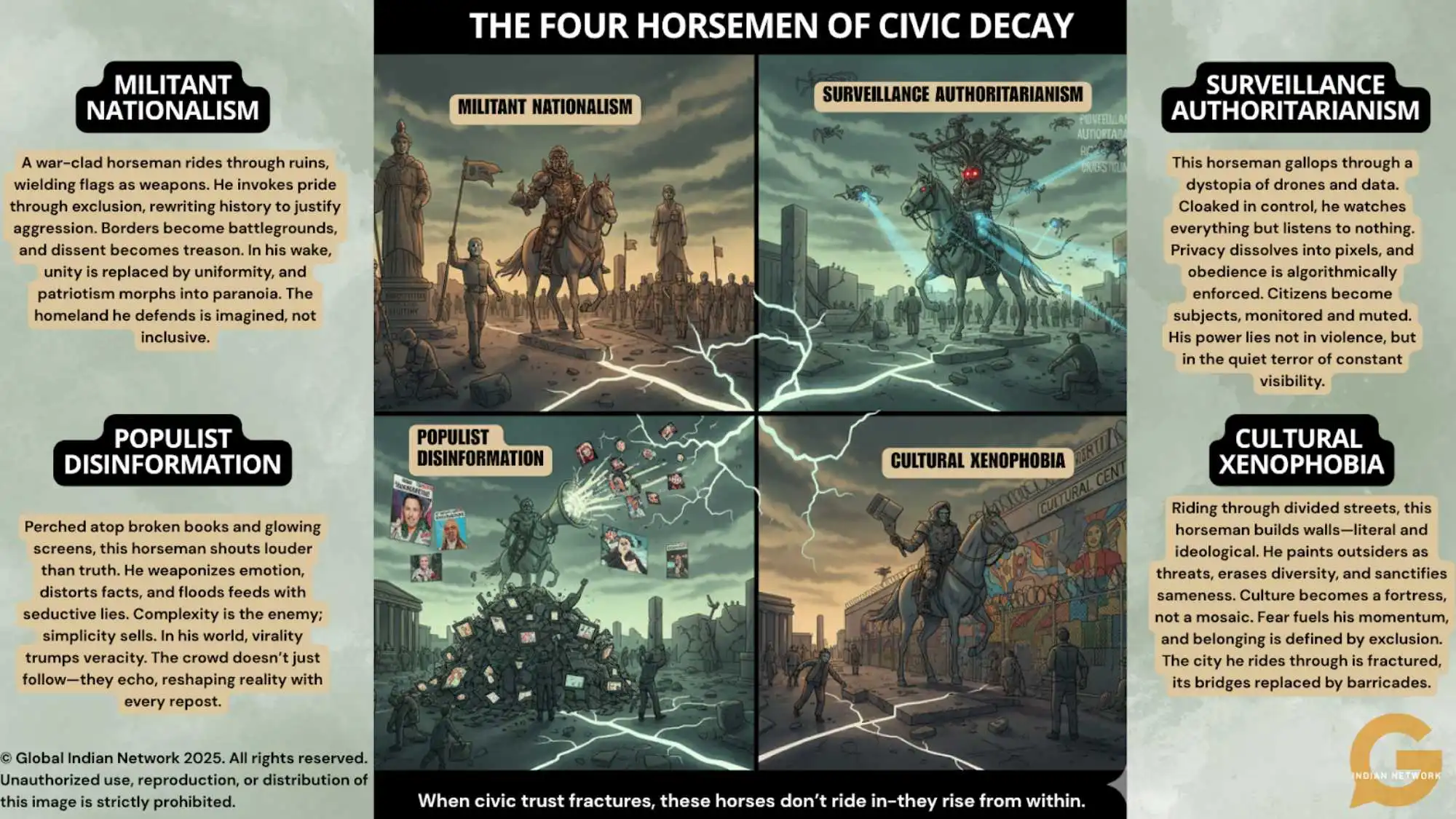
The tragedy is not only that so many follow but also that so many find comfort in doing so. Herds move together because it feels safe, even if the cliff lies just ahead. And as nations march in rhythm to this shared script of fear and pride, we may discover too late that being right was never the same as being good.
So…let me cap this. Being ‘far-right’ is far from being right. This ideology stands in stark contrast to the human values that propel nations toward progress and unity. Imagine a scenario where more than half the world supports far-rightism. Would nations survive?
And pray, would the Earth?
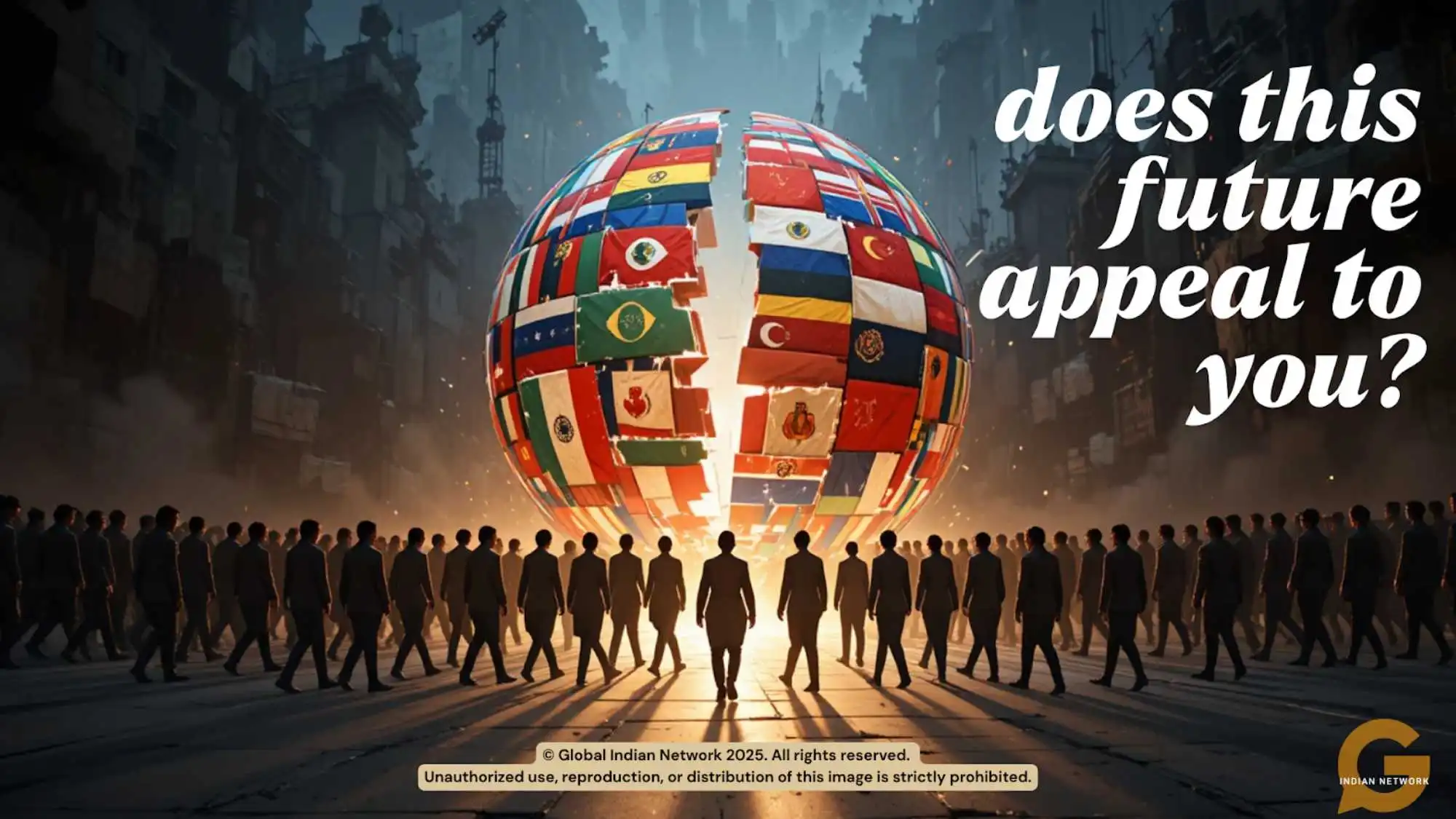
Let us know your thoughts. If you have burning thoughts or opinions to express, please feel free to reach out to us at larra@globalindiannetwork.com.




